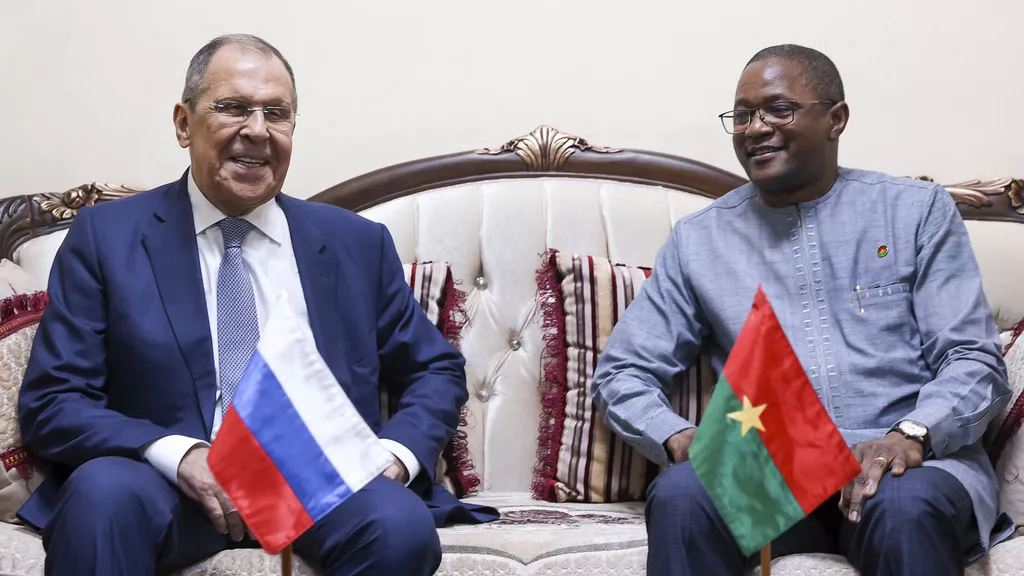On Wednesday, Russia’s Foreign Minister Sergey Lavrov committed to increasing support for Burkina Faso in its battle against militant groups during a press conference in Ouagadougou, the capital of Burkina Faso. This visit is part of Lavrov’s extensive tour of West Africa, following stops in Guinea and the Republic of Congo.
Lavrov’s tour aims to strengthen Russia’s influence in the region as traditional Western partners like France and the United States have seen their roles diminish. He noted that Russian instructors are already working in Burkina Faso and promised that their numbers would grow. Lavrov highlighted Russia’s ongoing efforts in training the country’s military and law enforcement personnel and assured continued military equipment supplies to bolster Burkina Faso’s defense against terrorist groups.
Lavrov praised Burkina Faso’s stance on the conflict in Ukraine and expressed Russia’s readiness to support African nations in shedding neo-colonial influences.
Burkina Faso, a landlocked nation with a population of 20 million, has suffered from extremist violence linked to al-Qaida and the Islamic State group over the past eight years. The country experienced two coups within ten months, with the latest resulting in the expulsion of French forces and a pivot towards Russian security assistance. Despite these efforts, the junta has struggled to manage the ongoing security and humanitarian crises.
According to the Norwegian Refugee Council, Burkina Faso remains at the top of the list of the world’s most neglected crises for the second consecutive year. In 2024, a record 6.3 million people will require humanitarian aid, with many facing starvation. The country has 2 million internally displaced people, 60% of whom are children, with limited resources available to support them.
Jan Egeland, the secretary-general of the Norwegian Refugee Council, criticized Western governments for withdrawing financial aid from Burkina Faso and other Sahel region countries, exacerbating the cycle of poverty, violence, and extremism. Egeland observed that while Russian flags are visible in Burkina Faso, he has not seen European flags or evidence of Russia contributing to humanitarian or development efforts.
Lavrov’s tour continued with his arrival in Chad later on Wednesday, another country facing severe humanitarian challenges.
